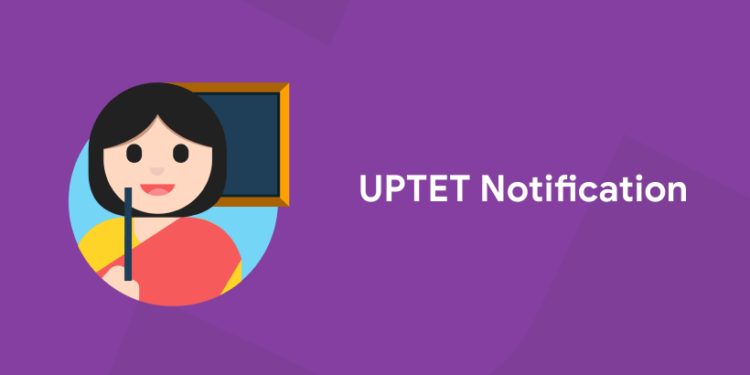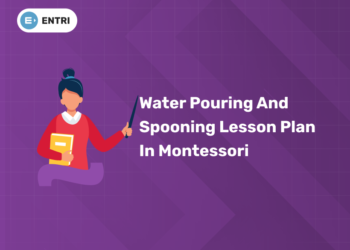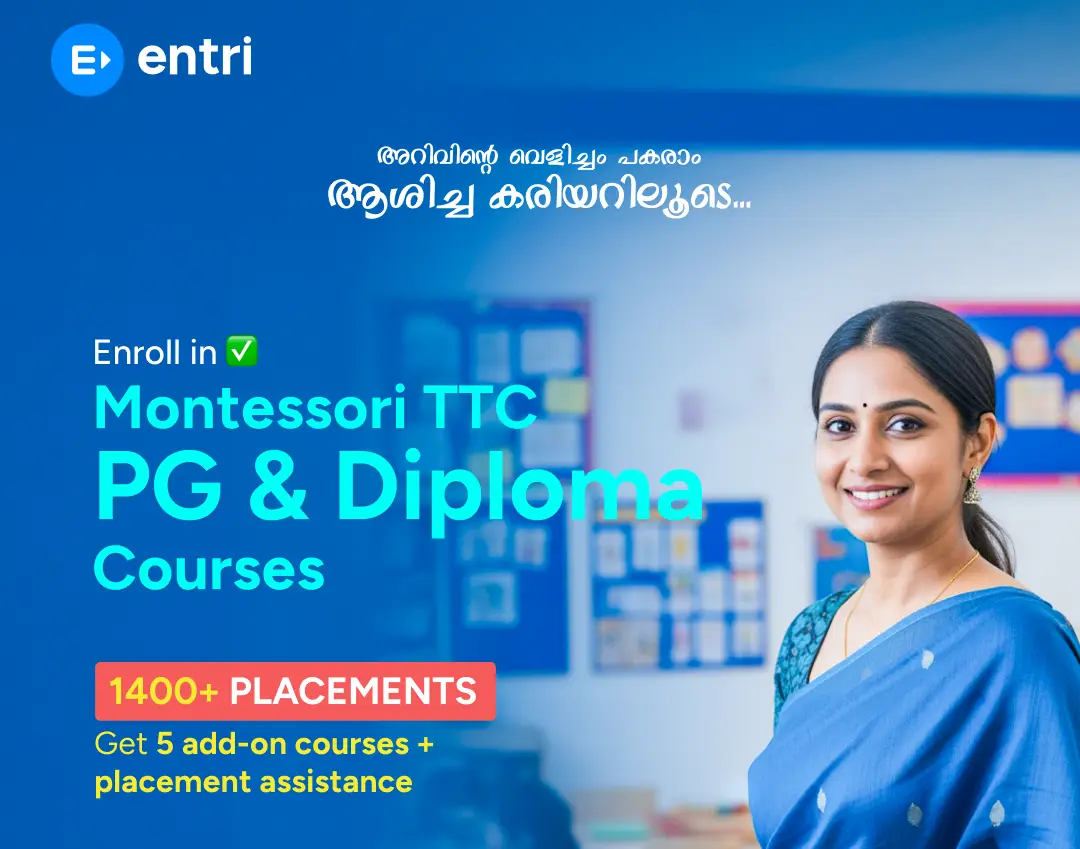Table of Contents
The UP teacher eligibility test for the year 2021 will be conducted on January 23, 2022, for recruiting Primary and Middle school teachers in the state of Uttar Pradesh. The candidates must start preparing for the entrance examination by taking into account the official notification which is published by the organisation of the Uttar Pradesh government for the vacancy of various government school teachers in the state. The official application form for the recruitment opportunity will be available in the month of October for all of the people who want to be a part of this opportunity. You can check out more specifications related to the UP teacher eligibility test notification 2022 from the blog provided below.
Practice Previous Question Papers for UPTET Exam 2022
UPTET Notification Overview 2022
Let’s have an overview of the UPTET 2022 Exam from the below table if you are planning to appear in the eligibility test for Primary or Upper Primary level teaching jobs.
| Exam Authority | Uttar Pradesh Basic Education Board, UPBEB |
| Exam Name | UPTET 2021 (Uttar Pradesh Teacher Eligibility Test) |
| Level | Primary & Upper Primary |
| Category | Eligibility Test |
| Job Level | State-level |
| Application Mode | Online |
| Language of Exam | English & Hindi |
| Frequency of Exam | Once in a year |
| Mode of Exam | Offline |
| Validity | Lifetime |
| Job location | Uttar Pradesh |
| Official website | http://updeled.gov.in |
UPTET Exam Dates 2022
1: Who was the first woman President of India?
The exam date for UPTET 2022 exam has not been released by UPBEB. As per the latest update of UPBEB, the UPTET 2022 examination for the Primary & Upper Primary levels is scheduled to be conducted in October and the result for the same will be declared in December 2022. However, given below are tentative dates for UPTET 2022 exam. UPTET 2022 Examination will be conducted in 2 sessions. The Primary Level Teachers exam will be held in the morning session (10:00 to 12:30) and Upper Primary Level Teachers in the evening session (02:30 to 05:00). Uttar Pradesh Basic Education Department has announced that there are a total of 51,112 seats vacant in the various schools of the state. These vacancies can be merged with the existing posts and thus a total of 68,500 vacant posts are still to be filled by the concerned department in the state.
|
Important Dates |
|
| Apply Online Date | October 2022 |
| Last Date for Payment of Application Fees | October 2022 |
| Call Letter for Prelims Exam | October 2022 |
| Online Exam – Preliminary | October 2022 |
| Result – Prelims Exams | October 2022 |
| Call letter for Main Exam | October 2022 |
| Online Examination – Main | December 2022 |
| Result of Main Examination | December 2022 |
| Call letters for interview | December 2022 |
| Interview | December 2022 |
| Provisional Allotment | December 2022 |
Free UPSKILLING Courses!
Take your first step toward mastering in-demand skills, acing interviews, and securing top-tier jobs with Entri's free upskilling courses.
Start Learning!UPTET Eligibility Criteria 2022
Candidates must apply after reading the eligibility criteria to appear in the Paper-I and Paper-II of the UPTET 2022 exam: Here are the broad pointers:
Educational Qualification
UPTET Eligibility for Paper-I (Primary-Level Teachers): The applicants need to satisfy any one of the criteria given below to meet UPTET eligibility for Paper-I:
- – Candidates should clear graduation in any discipline from UGC-recognized Universities/Institutions. However, after the completion of graduation, pursuing a two-year Diploma in Elementary Education (DElEd) is mandatory. Candidates in the final year of DElEd are also eligible to apply
- – Candidates should clear their graduation and post that should pass the Basic Training Certificate (BTC) for distance education. Candidates in the final year are also eligible to apply.
- – Candidates should clear graduation or post-graduation with a minimum of 50 per cent marks. Along with this, candidates should also be pursuing a Bachelor of Education (BEd).
- – Candidates should clear graduation or post-graduation with minimum of 45 percent marks. Along with this, candidates should also complete BEd.
- – Candidates should complete their graduation along with BTC in Urdu. Candidates in the final year are also eligible to apply.
- – Candidates should complete their graduation and also possess a diploma in teaching from Aligarh Muslim University.
- – Candidates should have completed their graduation and acquired the degree of Moavill-E-Urdu before August 08, 1997.
- – Candidates should complete their class 12th with a minimum of 50 per cent marks. Along with this, candidates should also complete the four-year duration Bachelor of Elementary Education (BElEd).
UPTET Eligibility for Paper-II (Upper Primary-Level Teachers): The applicants have to satisfy any one of the criteria given below to gain UPTET eligibility for applying in Paper II:
- – Candidates should complete their graduation from a recognized college or university. Along with this, candidates should also complete a two-year duration DElEd (BTC).
- – Candidates should clear graduation or post-graduation with a minimum of 50 per cent marks. Along with this, candidates should also complete BEd/ BEd Special Education. Candidates in the final year of BEd/ BEd Special Education are also eligible to apply.
- – Candidates should complete their class 12th with a minimum of 50 per cent marks. Along with this, candidates should complete a four-year duration BScEd/ BSc BEd from a UGC/ National Council for Teacher Education (NCTE) recognized institution. Candidates in the final year of BScEd/ BSc BEd are also eligible to apply.
- – Candidates should complete their class 12th with a minimum of 50 per cent marks. Along with this, candidates should also complete a four-year BElEd. Candidates in the final year of BElEd are also eligible to apply.
- – Candidates should complete their graduation with a minimum of 50 per cent marks. Along with this, candidates should also complete a one-year duration BEd. Candidates in the final year of BEd are also eligible to apply.
Age Limit and Relaxation
- Candidates should be between 18 and 35 years of age to apply for the UPTET exam. However, there is no limit on the number of attempts that candidates can take for the UPTET exam.
UPTET Application Form 2022
Last Year, over 16 lakh candidates registered for the UPTET exam as compared to nearly 18 lakh registrations done in 2018. Out of the total applications received in 2019, over 10.5 lakh registrations were done for paper-I and over 5.5 lakh registrations were done for paper-II. UPTET online application forms for 2022 will be available from October 2nd, 2022 (tentative) for UPTET 2022 Examination. You can apply online at the updeled.gov.in website. The Exam is expected to be held on January 23rd of this year, after being postponed because of a paper leak which was found two days before its scheduled date. Starting October, the UP TET Online application forms will open at the official website of updeled.gov.in to accept applications for UPTET 2022 Examination. For UPTET 2021, candidates can start filling their online applications starting January 23rd until they are taken offline due to a paper leak
How to Apply Online For UP TET Exam 2022?
Step 1: Online Registration
- Candidates are required to register on the official website of UPBEB i.e. updeled.gov.in.
- Once online registration is complete, candidates will receive a Registration Number.
- Use the Registration Number and Date of Birth to log in to the website.
Step 2: Pay UPTET Application Fees
- After Online Registration, pay the application fees.
- Candidates can pay the application fees in online mode via debit card, credit card or online banking.
Step 3: Fill UPTET Application Form
- Fill in all the required personal and educational details as per official records. Note that columns that are marked with ‘*’, cannot be left blank while filling out the application form.
- Mention your communication address and preferred exam centre.
- Verify the details and submit the application form.
Ace your Preparation for TET Exams! Download Entri App!
Step 4: Upload Photo and Signature
- Candidates are required to upload all the necessary documents online in one go.
- Documents required to be uploaded include scanned passport size photograph and signature.
- The file size of the photograph should be less than 20 Kbs and the signature size should range from 2 – 10 Kbs.
Application Fee
The category-wise online application fee for UPTET 2022 Paper-I & Paper-II exam is mentioned below:
| CATEGORY | Only Paper – I or II | Both Paper- I & II |
| General/OBC | Rs.600/- | Rs.1200/- |
| SC/ST | Rs.400/- | Rs.800/- |
| Differently Abled Person | Rs.100/- | Rs.200/- |
Apply Online Link
Click Here To Apply For UPTET 2022
Free UPSKILLING Courses!
Take your first step toward mastering in-demand skills, acing interviews, and securing top-tier jobs with Entri's free upskilling courses.
Start Learning!UPTET Exam Pattern 2022
UPTET Exam Pattern: Primary Teachers
- Exam Duration: 2 hours 30 minutes (150 minutes)
- Maximum Marks: 150
- There are no negative marks for wrong answers.
| Section | Number of Questions | Maximum Marks |
|---|---|---|
| Child Development, Learning and Pedagogy | 30 Questions | 30 Marks |
| Language-I (Hindi) | 30 Questions | 30 Marks |
| Second Language (English, Urdu or Sanskrit) | 30 Questions | 30 Marks |
| Mathematics | 30 Questions | 30 Marks |
| Environmental Studies | 30 Questions | 30 Marks |
UPTET Exam Pattern: Paper-II Upper Primary Teachers
- Exam Duration: 2 hours 30 minutes (150 minutes)
- Maximum Marks: 150
- There are no negative marks for wrong answers.
| Section | Number of Question | Maximum Marks |
|---|---|---|
| Child Development and Pedagogy | 30 | 30 |
| Language 1: No. | 30 | 30 |
| Language 2: English/ Urdu/ Sanskrit | 30 | 30 |
| Science and Mathematics/ Social Science/ Social Studies |
60 | 60 |
| Total | 150 Questions | 150 Marks |
UPTET Syllabus 2022
Child Development, Learning and Pedology
- Concept of development and its relationship with learning
- Principles of the development of children
- Influence of Heredity and Environment
- Socialization processes: Social world and children (Teacher, Parents and Peers)
- Piaget, Kohlberg and Vygotsky: constructs and critical perspectives
- Concepts of child-centred and progressive education
- Critical perspective of the construct of Intelligence
- Multi-Dimensional Intelligence
- Gender as a social construct; gender roles, gender- bias and educational practice
- Individual differences among learners, understanding differences based on diversity of language, caste, gender, community, religion etc.
- The distinction between Assessment for learning and assessment of learning; School-Based Assessment, Continuous and Comprehensive Evaluation: perspective and practice
- Formulating appropriate questions for assessing readiness levels of learners; for enhancing learning and critical thinking in the classroom and for assessing learner Achievement.
- Addressing learners from diverse backgrounds including disadvantaged and deprived.
- Language and Thought
- Addressing the needs of children with learning difficulties, ‘impairment’ etc.
- Addressing the Talented, Creative, Specially abled Learners.
- How children think and learn; how and why children ‘fail’ to achieve success in school performance
- Basic processes of teaching and learning; children’s strategies of learning; learning as a social activity; social context of learning.
- Child as a problem solver and a ‘scientific investigator’
- An alternative conception of learning in children; understanding children’s ‘errors’ as significant steps in the learning process.
- Cognition and Emotions, Motivation and learning.
- Factors contributing to learning personal and environmental
UPTET Syllabus: Language-I Hindi
- Unread Article.
- Noun and distinction.
- Pronouns and distinctions.
- Adjectives and distinctions.
- Action and distinction.
- Voice.
- The difference in all Hindi language sounds, conjuncts, joint consonants and lunar points.
- Alphabetical, synonyms, antonyms, non-synonyms, synonyms.
- The distinction of the abyss
- The distinction of Anusvara.
- Use of different forms of “r”.
- Sentence formation.
- Identification and use of punctuation marks.
- Use of speech, gender and time.
- Tatsam, Tdbhava, indigenous and foreign words.
- Prefixes and suffixes.
- Word Combinations.
- Composite, Deity and distinction.
- Idioms and Proverbs.
- Verb.
- Sandhi, distinction.
- Ornamentation
UP TET Language-II Sanskrit
- Unread Article.
- Treaty.
- Incessant
- Samas
- Use of gender, speech and time.
- Upstarts.
- Synonym.
- Antonyms.
- Factor.
- Ankara.
- Nouns.
- Masculine words
- Feminine words
- Spunky words
- Unexplained masculine
- Unexplained feminine
- Voice.
- Post mortal
- Successive woman
- Conviction.
- Napuskaling in Ukaran
- Icant women
- Ikaranta Pulling
- Akarant napuskaling
- Ikarant napuskaling
- Rakaranta Pulling
Language-II English
- Reading unseen passages- two passages one prose or drama and one poem with
- Reading comprehension, inference, grammar and verbal ability
- Principles of language Teaching
- Role of listening and speaking; function of language and how children use it as a tool
- A critical perspective on the role of grammar in learning a language for communicating ideas verbally and in written form;
- Knowledge of the famous poetry of famous poets
- Challenges of teaching language in a diverse classroom; language difficulties, errors and disorders
- Language Skills
- Evaluating language comprehension and proficiency: speaking, listening, reading and writing
- Teaching-learning materials: Textbook, multi-media materials, multilingual resource of the classroom
- Remedial Teaching
- Articles, Pronouns, Adjectives, Verbs
- Punctuation
- Singular plural
- Tenses, Verbs
- Active and Passive Voice
- Gender
Language II Urdu
- Unread Article.
- The language of the tongue meets the masters.
- Mukhtalif Asnaaf Adab such as Majnoom, Afsana Murcia, Masnavi Dastan, etc., praised Maya, Amsal.
- Masala of perfect tamarind and taffluj.
- Information about Ism, Jamir, Sifat, Mutzad Alphaz, Wahid, Mojkkar, Moannas et cetera.
- Saints
- Idioms, Jurbal Amsal’s meeting.
- Politically, Samji and Ekhlaki Masail are being beseeched and keep their attitude on it.
- Mukhtalif Asnaaf Adab Hamd, Ghazal, Qaside, Masnavi, understanding of the song and understanding their difference.
Social Studies: History
- When, Where and How,
- The Earliest Societies,
- The First Farmers and Herders, The First Cities, Early States, and New Ideas,
- The First Empire,
- Contacts with Distant lands,
- Political Developments,
- Culture and Science,
- New Kings and Kingdoms,
- Sultans of Delhi,
- Architecture,
- Creation of an Empire, Social Change,
- Regional Cultures,
- The Establishment of Company Power,
- Rural Life and Society,
- Colonialism and Tribal Societies,
- The Revolt of 1857 – 58,
- Women and reform,
- Challenging the Caste System,
- The Nationalist Movement,
- India After Independence.
Geography
- Geography as a social study and as a science,
- Planet: Earth in the solar system,
- Globe
- Environment in its totality: natural and human environment.
- Air, Water, Soil
- Human Environment: settlement, transport and communication,
- Resources: Types- Natural and Human, Agriculture.
Social and Political Science
- Diversity,
- Government,
- Local Government,
- Making a Living,
- Democracy,
- State Government,
- Understanding Media,
- Unpacking Gender,
- The Constitution,
- Parliamentary Government,
- Social Justice and the Marginalized.
Social Studies Pedagogical Issues
- Concept and Nature of Social Science/ Social Studies,
- Class Room Processes, activities and discourse,
- Developing Critical thinking, Enquiry/ Empirical Evidence,
- Problems of teaching Social Science/Social Studies, Sources – Primary and secondary,
- Projects Work.
UPTET Syllabus: Mathematics
- Algebra
- Number Systems
- Geometry
- Mensuration
- BODMAS Rule
- Units and Measurement
- Data Handling
- Pedagogical issues
UP TET: Science
- Food and Materials
- How do Things work?
- Metals and Non-Metals
- People and ideas
- Natural phenomena and resources
- The world of the living
- Moving Things, and Non-Moving Things
- Pedagogy of science
Uttar Pradesh TET Syllabus: Environment Studies
- Family Personal relationships, nuclear and joint families, social abuses (child marriage, dowry system, child labour, theft); addiction (intoxication, smoking) and it’s personal, social and economic bad effects.
- Clothes and Habitats – Clothes for different seasons; maintenance of clothes at home; handloom and power loom; habitats of living beings, various types of houses; cleanliness of houses and neighbouring areas; Different types of materials for building houses.
- Profession – Profession of your surroundings (stitching clothes, gardening, farming, animal rearing, vegetable vendor etc.), small and cottage industries; major industries of UP State, Need for consumer protection, co-operative societies.
- Public places and Institutions – Public places like school, hospital, post office, bus stand, railway station; Public property (street light, road, bus, train, public buildings etc.); wastage of electricity and water; employment policies; general information about Panchayat, legislative assembly and parliament.
- UP State Culture, and Civilization
- Transport and Communication – Means of transport and communication; Rules for pedestrians and transport; Effects of means of communication on the lifestyle.
- Personal Hygiene – External parts of our body and their cleanliness; general information about the internal parts of the body; Balance diet and its importance; Common diseases (gastroenteritis, amoebiosis, methaemoglobin, anaemia, fluorosis, malaria, dengue.) their causes and methods of prevention; Pulse Polio campaign.
- Living Beings: Levels of organisation of plants and animals, diversity of living organisms, state flower, state tree, state bird, state animal; knowledge of reserve forest and wildlife (national parks, sanctuaries, tiger reserve, world heritage), conservation of species of plants and animals, knowledge of Kharif and Rabi crops.
- Matter and Energy – Common properties of substances (colour, state, ductility, solubility) various types of fuels; types of energy and transformation of one form into another; Applications of energy in daily life, sources of light, common properties of light.
- Basic knowledge of air, water, forest, wetlands and deserts; different kind of pollution, renewable and non-renewable resources of energy in Rajasthan and concept of their conservation; weather and climate; water cycle.
- Concept and scope of Environment Studies. Significance of Environment Studies, Integrated Environment Studies. Environmental Studies and Environmental Education learning Principles. Scope and Relation to Science and Social Science. Approaches of presenting concepts Activities
- Work Discussions, Comprehensive and Continuous Evaluation. Teaching material/ Aids. Problems of Teaching.
UPTET Selection Process 2022
The UPTET selection process includes the following stages:
- Step 1- The UPTET exam consists of two papers. Paper-I needs to be given by aspirants who plan to teach classes 1-5. Paper-II needs to be given by candidates who plan to teach classes 6-8. Candidates who plan to teach classes 1-8 need to appear for both papers.
- Step 2- UPTET result is announced by UPBEB on the official website of the exam. Candidates scoring a minimum of 60 per cent marks in the written test are declared UPTET qualified.
- Step 3- Candidates qualifying for the written test are issued an eligibility certificate by UPBEB. Candidates having the certificate are eligible to apply for teaching jobs in the schools of Uttar Pradesh. The Validity of UPTET has been revised to be valid for a lifetime. Till now the UPTET certificate was valid for only five years.
UPTET Admit Card 2022
The admit card for any government exam will be released after the application process to the candidates who have successfully registered for UPTET Exam. The candidates have to download UPTET Admit Card from the official website http://updeled.gov.in only as no hardcopy or email regarding the hall tickets will be sent by the authority. The admit card for UPTET 2022 Paper-I & Paper-II exam will be issued to candidates tentatively 10 days before the exam date. Previously, the marks scored by a candidate through UPTET Exam were valid for a period of 5 years from the date of issue, however, the validity of certification has been revised to be valid for a lifetime. The qualified candidates can anytime grab a teaching job at the primary level or upper primary level with their UPTET Marks.
UPTET Answer Key 2022
UPTET 2022 has been scheduled for November and as expected the UPTET Answer Key will be released within 3 to 4 after the exam. The candidates can calculate their approximate marks with the correct responses released by the Uttar Pradesh Basic Education Board on its official website. The window for raising objections will also be activated facilitating the candidates to challenge the questions or answers released. UPTET 2022 Cut-Off will be declared once the result for the same has been released
Subscribe to Entri and get all the latest UP PSC/TET exam updates.
The result for UPTET 2022 will be released after each phase of the exam is completed. The answer key for UPTET 2022 exam will be declared first followed by the result for the same. The result of the UPTET 2022 exam will be released within a month of the exam date. As the UPTET 2021 Exam is to be held in November, therefore the result can be expected by the end of December 2022.











